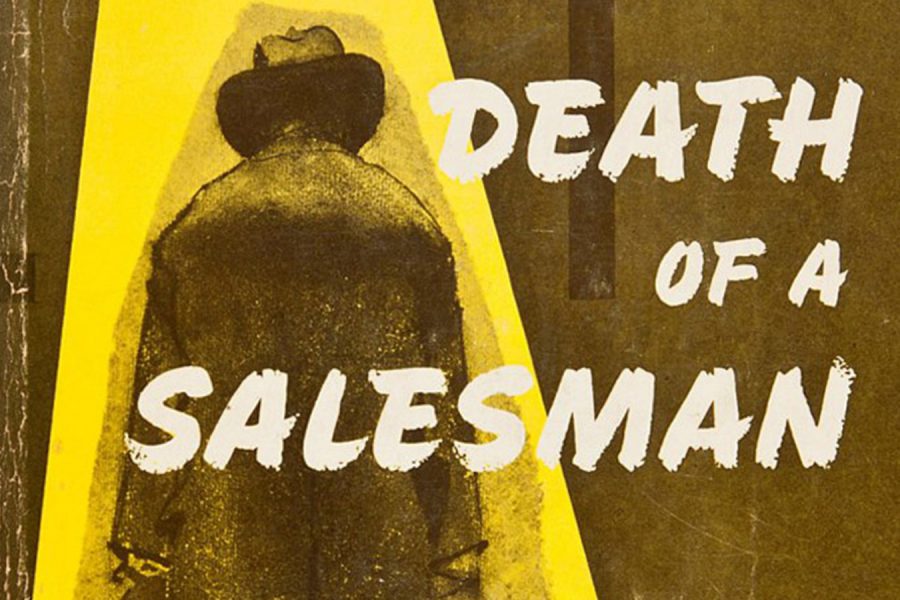Somewhat Informed: Zodrow’s Performing Arts Column; Arthur Miller’s “Death of a Salesman,” the Greatest American Play
The beauty of theater is both exceedingly illusive and profoundly lasting. There is no better play to convey this truth than 1949’s “Death of a Salesman.” In the midst of a public crisis driving many Americans into financial insecurity, it is worth reflecting on the powerful message that “Salesman” brought to the stage in the late 40s that reverberates to the present.
Arthur Miller was born in Harlem in 1915. Growing up in the midst of the Great Depression, Miller watched his father, a Jewish immigrant from modern-day Poland, struggle to keep his family afloat while preserving his own basic dignity. Playwright Lynn Nottage describes how this impacted Arthur: “Miller witnessed, first hand, the erosion of the American dream.”
This would profoundly impact the playwright’s vision of the world. His father never learned to write and derived much of his worth from his skill as a businessman. As he stated in HBO’s “Arthur Miller: Writer” documentary, “I felt terrible pity for him.” Arthur found that a person’s humanity was linked to their ability to maintain a livelihood, and he learned how a lack of opportunity can crush a person’s relationships and sense of self-worth. “From that, I think I contracted the idea that we’re very deeply immersed in the political and economic life of the country and of the world.”
Unlike Norman Rockwell, the brilliant painter who captured the cozy atmosphere that many look back to when reflecting on the early 20th century, Miller didn’t see the ‘American dream’ through rose-tinted glasses. Rockwell was born in New York in the 1890s, and had enjoyed the roaring twenties as a beloved young painter rather than the son of a struggling immigrant. While both men were undeniably titans of their age, Miller would always retain a ‘blue collar’ mentality that Rockwell could only attempt to approximate.
Working menial jobs to pay for his tuition, Miller landed at the University of Michigan, and quickly grew to love the radical nature of theater. Unlike many of his contemporaries, he was content writing plays that spoke to something he cared about rather than the kind of theater others wanted to watch. This meant that, rather than fast tracking to Broadway, he spent his time trying to find his voice before he said anything. Writing radio plays to get by, he finally broke into show business with his first Broadway show, “The Man Who Had All the Luck,” in 1944. The New York Times condemned it as lacking “either the final care or the luck to make it a good play.”
If there is one thing that remains true about theater today that was true in 1944, it’s that a bad review in the Times is enough to sink a play. And sink it did. The play opened on a Thursday and closed that Saturday, having sustained four performances. Demoralized, Miller vowed never to write a play again, and set to work on a novel. Focus,, a novel about anti-semitism, was a success. However, Miller couldn’t help but come back to the theater. “All My Sons,” a play about the failings of a father and a country, showed signs of Miller’s preoccupation with how politics interplay with personal life, particularly between father and son.
This culminated in 1949’s “Death of a Salesman.” The play focused on Willy Loman, a father of two, who struggles with the fleeting nature of the ‘American Dream’ and family life. He would become a seminal American dramatic character. He wasn’t important because he was strong or smart or unique, but because he was none of these things. Loman moved audiences because the viewers saw their fathers, sons, or themselves in him. His mediocrity and inability to create a lasting impression broke the hearts of American audiences who were keenly aware of the pains that Miller was showcasing.
The play was both firmly rooted in its era and remains a timeless testament to the power of theater.
The post WW2 era in which the play takes place was an inflection moment in which a generation of adults found that their sons and daughters recognized a completely different America than they did. The ‘old school’ ways were out. An average uncharismatic and unattractive salesman could not get by. The economy was no longer built to sustain a proud family off of a middle-income salary.
However, in the age of COVID, the play’s relevance is again reaffirmed. Americans have looked to the government for the dignity afforded by proper healthcare and worker protections, and have received a pitiful check from the IRS instead. Parents are explaining to their children why they have lost their incomes. The economy is not built to allow for dignified working families. Living room politics are being ignited by the fuel of insecurity and dread.
The eternal irony of Arthur Miller’s life is that he was not Willy Loman. He was a celebrity, took Marilyn Monroe as his second wife, and died one of the most celebrated authors in the history of the United States. Miller wasn’t Loman, but he understood him better than anyone else. While Lee J. Cobb’s initial performance still looms large in the American imagination, the true original Willy Loman wasn’t acted by, but rather lived by, Arthur Miller’s father.
Miller watched his father struggle as a teenager during the great depression. There are countless plays about hardship in the 30’s that have long been forgotten. The elemental truth that Miller captured in “Death of a Salesman” transcended this setting, and showed how basic access to opportunity can be the difference between a fruitful life and a pitiful death.











